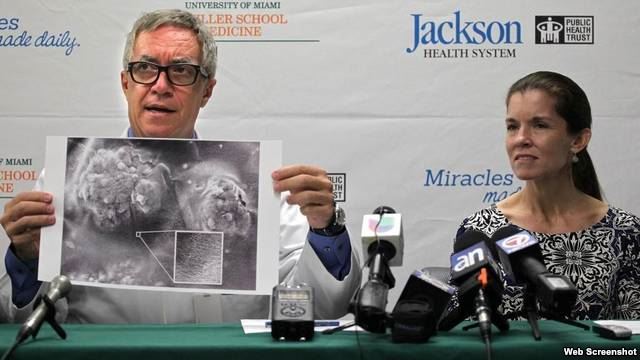
[전문 & mp3] / [받아쓰기]
A diabetic woman no longer needs to take daily medicine after she received a stem cell transplant. The daily insulin injection had helped control the amount of sugar -- or glucose -- in her blood. Wendy Peacock was first diagnosed with type 1 diabetes at age 17, according to the Miami Herald newpaper. Ms. Peacock, who is now 43, received the stem cells in mid-August in a "minimally invasive procedure" at the University of Miami-Miller School of Medicine in Florida. Doctors called the operation simple and said Ms. Peacock recovered quickly. After the operation, her body started producing insulin naturally. Ms. Peacock "is now completely off insulin," one of her doctors said. "These are the best ... results we've seen," said Dr. Camillo Ricordi, director of the Cell Transplant Center at the Diabetes Research Center in Florida. "If these results can be confirmed, this can be the beginning of a new era in ... transplantation," said Dr. Ricordi. If other doctors study the results and confirm the outcome, the procedure could become available to other diabetics.
* stell cell transplant = 줄기세표 이식/ insulin injection = 인슐린 주사액/ glucose = 포도당/ be diagnosed with ~ = ~로 진단받다/ minimally = 극히 작게; 최소량[수]으로/ invasive = (의학적 치료가) 몸에 칼을 대는, 외과적인/ confirm = 사실임을 보여주다[확인해 주다]/ era = (특정한 성격, 사건에 의해 다른 시대들과 구별되는) 시대/ diabetic = 당뇨병 환자; 당뇨병 환자(용)의
Ms. Peacock says her life has changed dramatically as a result of the operation. Before the operation, Ms. Peacock was unable to sense when her blood glucose dropped dangerously. Low glucose can make a person confused or unconscious. It may even lead to death. "As any type 1 knows, you live on a very structured schedule," Ms. Peacock explained. "I do a mental checklist every day in my head … glucose tabs, food, glucometer, etc., and then I stop and say, 'WOW! I don't have to plan that anymore.' " Asians will find the medical news encouraging. Studies have shown that Asians are at higher risk of developing type 2 diabetes, when compared with people of European ancestry. That's according to the Asian Diabetes Prevention Initiative at Harvard University in Massachusetts. Asian populations have fewer overweight and obese people than people in the West. But they have a higher percentage of people with diabetes. Currently, 60 percent of the world’s diabetic population is Asian, according to the Initiative's website.
* dramatically = 극적으로/ unconscious = 의식이 없는/ structured = 구조[조직]화된/ glucometer = 혈당 측정기/ encouraging = 힘을 북돋아 주는; 유망한/ at risk of ~ = ~의 위험에 처한/ when[as] (they are) compared with ~ = ~와 비하여/ ancestry = 가계, 혈통/ initiative = 계획; 자주성/ obese = 비만인












